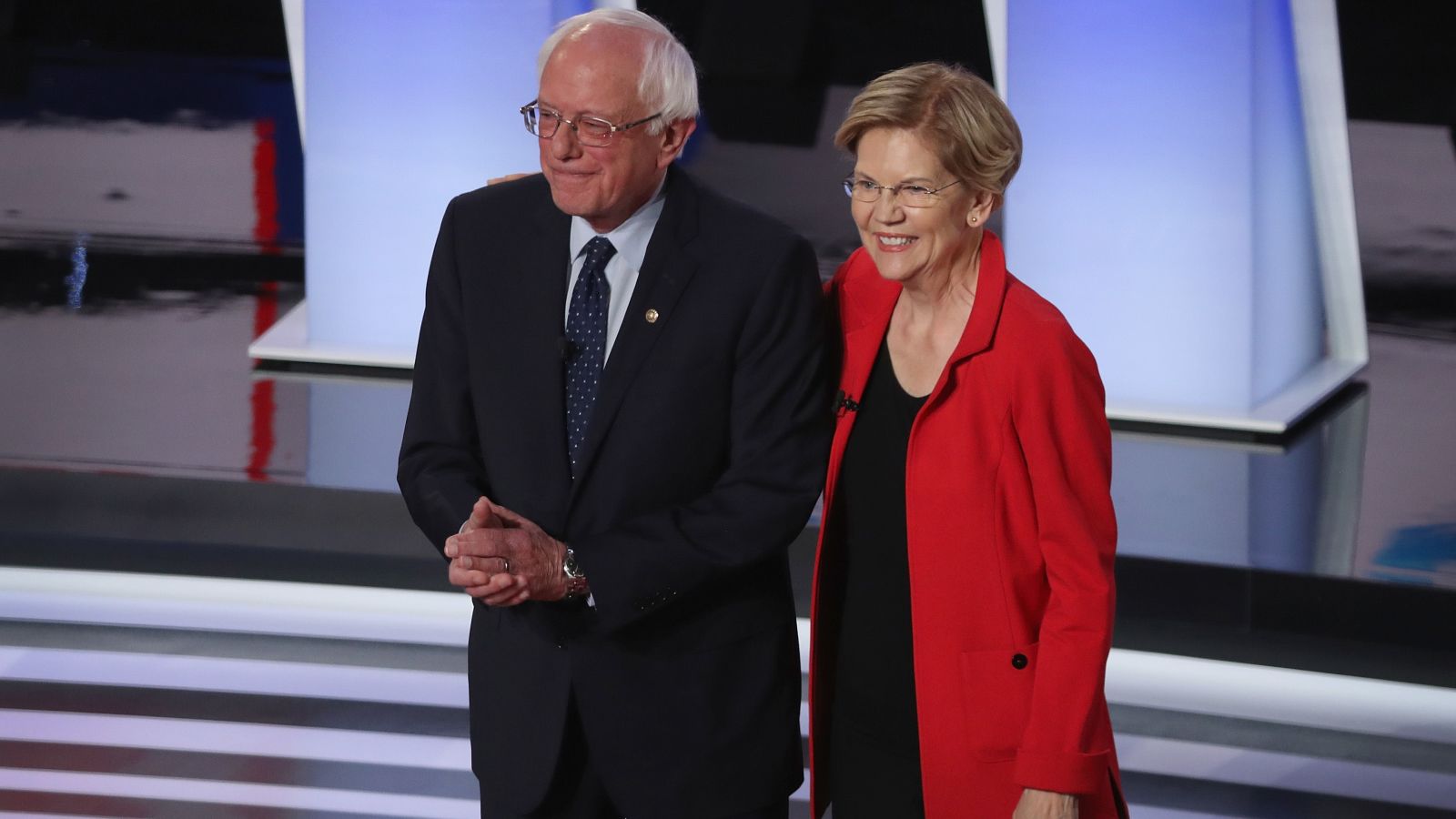Earlier this year, during a State of the Union address, President Trump called for the end of the HIV epidemic in the U.S. within ten years. But in a new report published weeks after Trump’s bold pledge, the number of new HIV infections stalled for the first time between 2013 and 2016, after years of gradual decline. According to an interview with one expert over at NBC News, a goal of HIV eradication by 2030 is “extremely unlikely.”
This week, results from a survey by AIDS United and members of the ACT Now: End AIDS Coalition detailed several Democratic candidates’ plans to end the HIV epidemic. Several candidates reiterated their support of increased HIV/AIDS research and funding for plans like the Ryan White Program (which allows access to treatment for those who are underinsured or uninsured) and Housing Opportunities for Persons with HIV/AIDS (which provides housing assistance for those living with HIV).
In other instances, some candidates differ on how to combat drug prices and the adoption of universal health care as it relates to HIV treatment. Below, you’ll find several candidates’ responses to the survey—of those who qualified for this week’s debates—and some of their core values when it comes to expanding awareness and elimination of HIV.
Joe Biden
No plan provided but co-sponsored an act in 2008 that authorized $48 billion in funding to fight HIV/AIDS, tuberculosis, and malaria.
Cory Booker
- Would work with Congress to “implement and pass comprehensive sex education legislation.”
- Would “work to extend federal protection from discrimination based on HIV status and fight to provide the resources they need to be successful in our society.”
- Supports the Prescription Drug Price Relief Act, forcing drug companies to charge prices in line with prices determined in other countries.
Pete Buttigieg
- Would “revitalize” the Office of National AIDS Policy, which works to reduce and spread awareness of the HIV/AIDS epidemic across the U.S. (Since January 2017, President Trump has failed to appoint a new director of ONAP after its previous director, Amy Lansky, left that month. Several other staff members have resigned.)
- His ONAP strategy would restore civil rights protections for those with HIV in health care settings, “address the stigma” for those who face challenges in obtaining preventative and general care for HIV, and provide access to PrEP for those determined “at risk” by ensuring that all costs are covered by insurance plans. (Alternatively, if this fails, his administration would “take over” drug company patents and lower prices.)
- Does not support universal health care (instead, would “strengthen” the Affordable Care Act).
Julián Castro
No plan provided but supports the affordability of HIV prevention methods and PrEP, “improved” sex education, increased access to testing, and the “ending” of stigma around HIV status.
Kamala Harris
- Would lower PrEP prices “through licensing the patent to competitors or by using the government’s authority under other intellectual property laws to increase the affordability of PrEP”; also recently introduced the PrEP Access and Coverage Act, ensuring access to PrEP by mandating public and private insurers to cover associated costs.
- Would “hold pharmaceutical companies accountable if they engage in price gouging” and “set ceilings for prescription drug prices to put them in line with countries such as Canada and Germany.”
Amy Klobuchar
- No plan provided but has supported increased funding for Housing Opportunities for Persons with HIV/AIDS as Minnesota senator.
Beto O’Rourke
- Would lower drug costs through “drug importation from Europe and Canada,” “modifying regulations that get generic drugs on the market faster,” and “take on” drugmakers involved in price gouging.
- Would “recognize the discrimination facing older Americans” and ensure that older Americans living with HIV would not be forced to hide their status or sexual orientation “for fear of losing their access to nursing home facilities.”
- Supports a moderate iteration of universal health care through the Medicare for America plan, which would allow individuals to maintain their employer-based insurance.
Bernie Sanders
- “We must set a national goal of ending the HIV epidemic in the U.S. by the year 2025 so that HIV is no longer a public health threat to any community in the U.S. and that people with HIV are able to live long, healthy lives.”
- Would create an HIV/AIDS Task Force composed of people with HIV/AIDS to “develop recommendations” on ending the HIV epidemic.
- Would create a “multi-billion dollar Prize Fund” for HIV/AIDS researchers. “Essentially, a company bringing a truly innovative HIV/AIDS treatment to market would receive a cash prize instead of patent protection; the treatment would then be placed in the public domain, allowing generic versions to come onto the market quickly.”
- Would end HIV-specific criminalization laws.
Elizabeth Warren
- Expand the Fair Housing Act to ban housing discrimination on the basis of gender identity and sexual orientation.
- Has co-sponsored the REPEAL Act (or the Repeal Existing Policies that Encourage and Allow Legal HIV Discrimination Act) that would eliminate related discriminatory laws.
- Has introduced several of acts to target drug prices. These include: the Affordable Drug Manufacturing Act (which would lower drug prices and allow for the government to manufacture generic drugs under certain conditions), the Capping Prescription Costs Act (which would cap family prescription costs at $500 each month), the Prescription Drug Price Relief Act (which would force drug companies to charge prices in line with prices of other nations—Sanders co-introduced this), and the Affordable Medications Act (to ultimately lower drug prices).
Andrew Yang
No plan provided.





